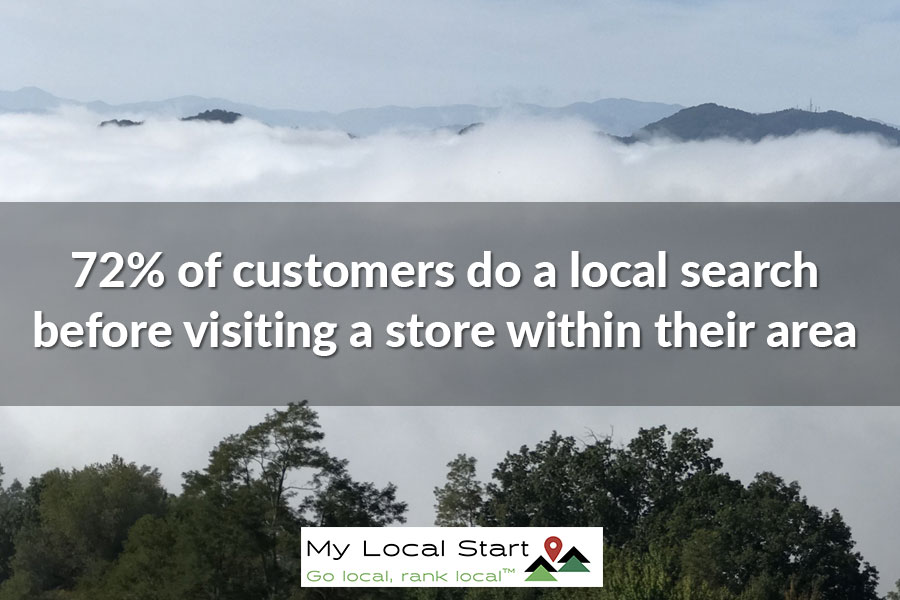10 Common Search Marketing Mistakes that Will Cost You in Long Run!

Search engine marketing is not as hard as you think. You can learn SEO and apply it the techniques to your own site. Whether or not the site will rank, that’s another story. BUT, at least you tried.
And, if you keep on trying, you will see results.
When it comes to organic search marketing, “consistency” is where most people get in trouble.
TL;DR
- No clear understanding of your target audience
- Neglecting mobile optimization
- Ignoring local search optimization
- Over or under using your target keywords
- Neglecting on-page optimization
- Neglecting off-page optimization
- Not tracking and analyzing results
- Not diversifying your traffic sources
- Not keeping up with industry trends
- Not having a clear call to action (CTA)
Below are 10 common search marketing mistakes which can turn your successful marketing campaign into a nightmare.
- Not having a clear understanding of your target audience
It’s important to have a clear understanding of who your target audience is, what their interests and needs are, and how they search for the products or services you offer. This will help you create more targeted and effective search marketing campaigns.
Tip: Targeting the wrong audience may backfire on your marketing campaign. Save your time and money, and don’t target a broad audience!
- Neglecting mobile optimization
With the increasing use of smartphones and tablets to access the internet, it’s essential to ensure that your website is optimized for mobile devices. This includes using a responsive design, fast loading times, and making sure all content is easily accessible on a small screen.
Not having a mobile-friendly website can negatively impact your search engine rankings and make it difficult for potential customers to find your business.
Did you know? 53.8% of web designers cite ‘not being responsive on all devices’ as the top reason for a website to be redesigned.
Source: https://blog.hubspot.com/website/mobile-optimization-stats
- Ignoring local search engine optimization
If you have a physical location or serve a specific geographic area, it’s important to optimize your website and online presence for local search.
This includes claiming your Google My Business listing (now Google Business Profile), getting listed in online directories, and using local keywords in your content.
Did you know? 72% of customers do a local search before visiting a store within their area.
Source: https://blog.hubspot.com/marketing/local-seo-stats
- Over or under using your keywords
Stuffing your content with too many keywords can actually hurt your search rankings and make your content difficult to read.
Not using any keyword at all (because you haven’t done the keyword study) will cost you a big edge especially if you’re in a competitive industry or local location.
Focus on creating high-quality, valuable content that naturally incorporates relevant keywords.
Keyword spamming was a technique that worked almost 20 years ago, methinks.
Get with the program. Don’t spam keywords into your content. It’s a waste of time.
- Neglecting on-page optimization
Creating high-quality content is important but it’s also beneficial to optimize the various elements on your websites, such as title tags, meta descriptions, and header tags, to improve your search engine rankings.
Most local business sites are using some type of Content Management System (CMS). The most popular one is WordPress.
Install Yoast SEO in your WordPress. This nifty SEO tool eliminates a whole lot of on-page optimization headache.
- Neglecting off-page optimization
Off-page optimization refers to the efforts you make to improve your website’s visibility and credibility through external sources, such as link building and social media marketing.
Off-page optimization, in a nutshell, is backlink building.
Always leverage social media and other online platforms to promote your business and drive traffic to your website.
Did you know? 77% of social media marketers say social media marketing has been effective in boosting their companies’ business.
Source: https://blog.hubspot.com/blog/tabid/6307/bid/23865/13-mind-bending-social-media-marketing-statistics.aspx
- Not tracking and analyzing results
It’s important to track and analyze the performance of your search marketing efforts to see what’s working and what’s not.
Free basic analytic tools: Google Search Console and Google Analytics.
I believe SemRush has a free basic version with limited capabilities. But, if you are just starting, it should suffice.
It’s better to regularly monitor and analyze your search marketing efforts to identify areas for improvement and adjust your strategies accordingly.
- Not diversifying your traffic sources
Relying too heavily on a single traffic source, such as search engines, can make your business vulnerable to changes in algorithms or policies.
Find other affordable offline channels such as local newspaper, sponsoring local events, connect with other local business owners, etc.
- Not keeping up with industry trends
The world of search marketing is constantly evolving, so it’s important to stay up to date on the latest trends and best practices.
This includes changes to search algorithms, new technologies and platforms, and shifts in consumer behavior.
- Not having a clear call to action
It’s important to clearly communicate to your audience what you want them to do next, whether it’s making a purchase, filling out a form, or subscribing to your email list.
Make sure your call to action is prominent and easy to find on your website.
Not having a clear call-to-action (CTA) on your website, can make it difficult for potential customers to take the next step and contact your business.
Did you know? Personalized CTAs are 200% more effective than the basic ones!
Source: https://blog.hubspot.com/marketing/personalized-calls-to-action-convert-better-data
Make your marketing campaigns successful by avoiding the above-mentioned mistakes!
I hope you found this article informative and helpful!
